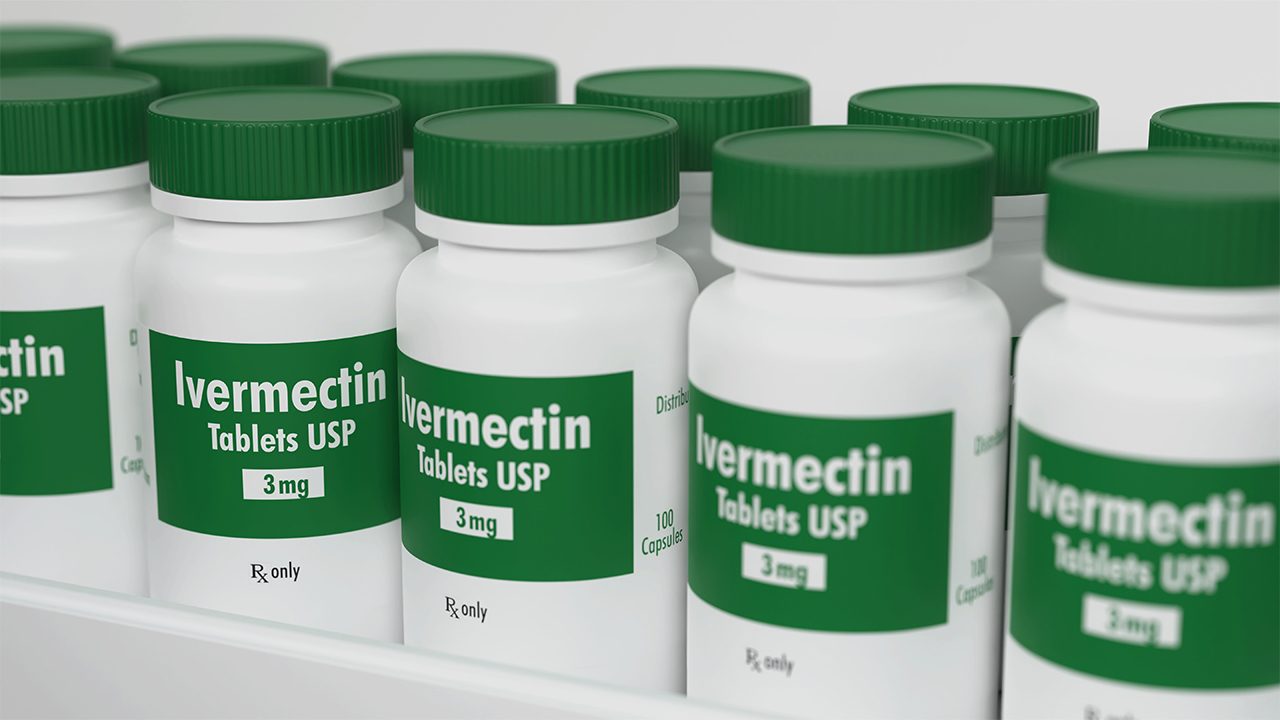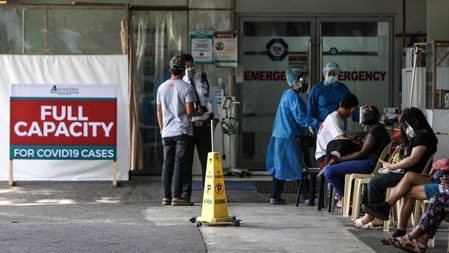SUMMARY
This is AI generated summarization, which may have errors. For context, always refer to the full article.

Philippine health regulatory officials and the World Health Organization (WHO) have made it clear: While there’s no ban on anti-parasitic drug Ivermectin in the country, legal and scientific processes must be followed to ensure the safety and quality of the drug if used to treat COVID-19.
Medical experts echoed this view in a webinar on the pros and cons of using Ivermectin for COVID-19 treatment, organized by the Philippine-American Academy of Science and Engineering (PAASE) on Friday, April 9.
Dr Jacinto Mantaring, chair of the University of the Philippines (UP) and Department of Health’s research ethics board, said that it would be better to wait for the results of ongoing clinical trials before assessing if the drug could be used to treat COVID-19.
“What’s more prudent is to wait for the results of the ongoing trials. More and more trials are being completed as we speak, so let’s wait for the results,” Mantaring said.
In a statement on Friday, the Department of Science and Technology (DOST) said that there is “no need to conduct another clinical trial in the Philippines” as “there are almost 20 completed and 40 ongoing clinical trials around the world.”
The DOST is also of the view that it would be “appropriate to await the results of these studies that are already significantly advanced in terms of data collection and conducting interim analyses.”
“Clinical trial projects will require a minimum of 6 months and can extend to years. That is how long we have to wait to have results and conclusions,” the DOST said.
While there have been clinical trials conducted for Ivermectin in other parts of the world, there is still not enough scientific evidence for its efficacy against COVID-19.
A meta-analysis funded by Unitaid, an agency hosted by WHO, reviewed 18 randomized controlled trials involving 2,282 patients, and found early encouraging results. It also noted, however, that “many studies included were not peer reviewed and meta-analyses are prone to confounding issues.”
According to the meta-analysis, based on 6 randomized trials of moderate or severe infection treated with Ivermectin, there was a 75% reduction in mortality and reduced hospitalization. (READ: Are we missing out on alternative treatments for COVID-19?)
Still, the authors of the meta-analysis said, “Ivermectin should be validated in larger, appropriately controlled randomized trials before the results are sufficient for review by regulatory authorities.”
‘Comparing apples and oranges’
During Friday’s webinar, Mantaring expressed concerns over the meta-analysis presented by Ivermectin advocate Dr Tess Lawrie. She presented the analysis funded by Unitaid.
“Studies that compare Ivermectin and hydroxychloroquine should not be combined with studies that compared Ivermectin with placebo,” he said.
“It’s like comparing apples and oranges. If the studies that make up the meta-analysis are poor study quality, then you should expect that meta-analysis to have poor study quality,” Mantaring added.
Lawrie said in response: “I’m quite sure that the studies are not garbage. We’re moved by them. We assist the evidence with routine grade procedure and enough events.”
Gray area
Dr Benjamin Co, a specialist in infectious diseases and clinical pharmacology, said that while he sees the potential of Ivermectin, a lot of questions on its treatment efficacy and prophylaxis – action taken to prevent disease – remain unanswered, so there’s a need for well-planned and controlled trials.
“There is this promotion of Ivermectin for prophylaxis and then there is this promotion of the drug for treatment. I would like to see where the difference between [them] because for infectious disease, you should have basis for prophylaxis and basis for treatment regimen,” he said.
Co said the lack of data on how long the drug should be given to patients makes it hard for medical experts to review its safety and efficacy.
“The question is, how long would you give it to patients during the pandemic? You must meet a certain endpoint for certain treatment,” he said.
“You look at the safety data as well. While it’s true that Ivermectin has a very wide safety profile, this is based on anti-parasitic therapy,” Co added.
Responding to Co, Lawrie said that people are racing against time and there’s no more time to do such studies.
“It’s interesting, pharmacology, but we’re talking about people. We are in a pandemic. People are dying. We don’t need to know every single detail of the medicine,” she said.
Amid the ongoing public debate over the use of Ivermectin to treat COVID-19, the Philippines’ Food and Drug Administration (FDA) on Thursday, April 8, issued a limited permit for an undisclosed hospital to use Ivermectin for COVID-19.
A compassionate special permit (CSP) allows for the limited use of investigational drugs or unregistered drugs. The use of the drug is also limited to the hospital which obtained the permit, which means it cannot be sold in the market.
Having this CSP, however, does not guarantee either that the drug is proven effective or already recommended by the FDA.
– Rappler.com
Add a comment
How does this make you feel?



![[Time Trowel] Evolution and the sneakiness of COVID](https://www.rappler.com/tachyon/2024/02/tl-evolution-covid.jpg?resize=257%2C257&crop=455px%2C0px%2C1080px%2C1080px)


There are no comments yet. Add your comment to start the conversation.